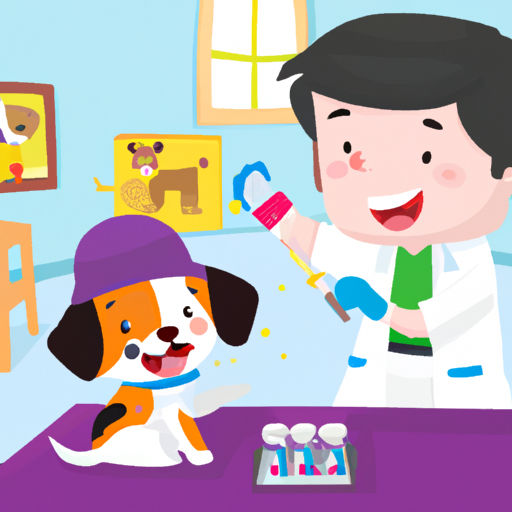Understanding Rabies and Its Impact on Dogs
Rabies, a deadly disease primarily transmitted through the bite of an infected animal, poses a significant threat to your beloved fur friend. As a caregiver, it’s essential to understand the gravity of this disease. It affects the central nervous system, leading to brain disease and, eventually, death. Its symptoms can be quite terrifying, with affected dogs showing signs of aggression, paralysis, and even seizures.
The Importance of Rabies Vaccination
Prevention is always better than cure, particularly when dealing with a disease as lethal as rabies. This is where rabies vaccines come into play. They’re not just a recommendation; in most regions, they’re a legal requirement. The vaccine stimulates your dog’s immune system to fight off the disease, thus keeping not only your pet safe, but also your family and community.
When Should Dogs Get Their Rabies Vaccines?
The timing of the rabies vaccine can vary based on your dog’s age, health status, and local laws. However, here’s a general timeline:
- Puppy stage (6 months): Most vets recommend the first rabies shot at this stage.
- One year after the initial shot: This is the first booster shot.
- Every 1 to 3 years thereafter: The frequency of booster shots depends on the type of vaccine and local laws.
| Age of the Dog | Vaccine Timing |
|---|---|
| Puppy (6 months) | Initial Shot |
| 1.5 years | First Booster Shot |
| Every 1 to 3 years after | Regular Booster Shots |
Side Effects of Rabies Vaccines
Like any other vaccine, the rabies vaccine can have side effects. While these are usually mild and temporary, it’s important to keep an eye out for symptoms such as:
- Loss of appetite
- Fever
- Swelling or redness around the vaccine site
- Rarely, severe allergic reactions
If you notice any severe or prolonged symptoms post-vaccination, contact your vet immediately.
How to Ensure Your Dog’s Safety Post-Vaccination
After your dog gets their rabies shot, you should monitor them for any adverse reactions. Keep them calm and comfortable, and avoid any strenuous activity for a few days. Always follow your vet’s post-vaccine care instructions.
Frequently Asked Questions
Q: Is the rabies vaccine absolutely necessary for my dog?
A: Yes, apart from being a legal requirement in many places, it’s crucial for your dog’s health and safety.
Q: What if my dog misses a rabies vaccine booster shot?
A: If your dog misses a booster shot, consult with your vet. They will likely recommend a new shot as soon as possible.
Q: Can my dog get rabies even if it’s vaccinated?
A: The rabies vaccine is highly effective, but no vaccine is 100% foolproof. It’s important to avoid situations where your dog might be exposed to rabies.
Q: Are there natural alternatives to the rabies vaccine?
A: There are no natural alternatives to the rabies vaccine that have been proven to be effective. Always consult with your vet for any health decisions concerning your pet.



